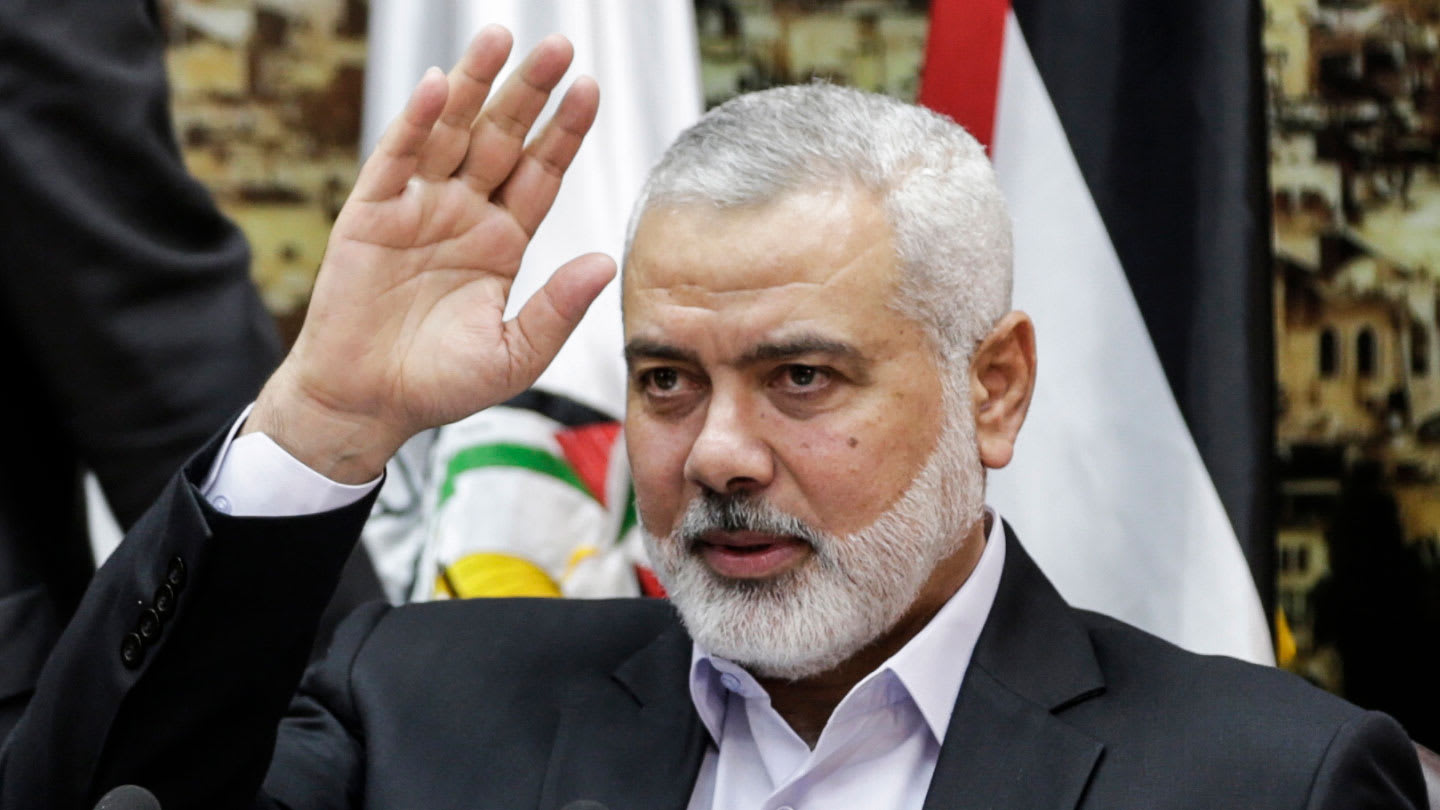Haniyeh leaves behind a legacy as a Palestinian political icon and one of Hamas’ most prominent faces, particularly with his vital role throughout the latest ceasefire talks.
The world woke up on Wednesday morning to the shocking news of Israel’s assassination of Hamas political chief Ismail Haniyeh, which came as the region has been witnessing heightened risks of the escalation of war.
In 2019, Haniyeh moved to Doha, where Hamas has a political bureau established at the request of the United States.
His killing was met with global condemnations including by Qatar, Iran, Türkiye, Russia, China, Lebanon, Jordan and Afghanistan.
Haniyeh was among the top Hamas officials that Israel has killed since the 1990’s.
In 1996, Israel assassinated Hamas military leader Yahya Ayyash in Gaza’s Beit Lahiya, followed by the assassination of Hamas spiritual leader and founder Sheikh Ahmed Yassin in an Israeli air strike in Gaza in March 2004.
A month later, Israel assassinated Yassin’s successor and Hamas co-founder Abdel Aziz Al-Rantisi in an airstrike in Gaza City. A decade later, Israel killed senior Hamas official Saleh Al-Arouri in a drone strike in Beirut in January 2024.
Haniyeh has long been a target of Israel, whose family has been targeted alongside him. But in April, Israel killed Haniyeh’s three sons—Hazem, Amir and Mohammed—while they were visiting relatives for Eid at Gaza’s Shati refugee camp. The occupation forces also killed four of his grandchildren—Mona, Amal, Khaled and Razan.
At the time, Haniyeh said Israel had killed around 60 of his family members.
Then, in June, Israel killed Haniyeh’s mother, 80-year-old Zahr Abdel Salam Haniyeh, along with nine other family members in Gaza’s Al-Shati refugee camp.
The life of Ismail Haniyeh
Haniyeh has left behind a legacy as a Palestinian political icon and one of Hamas’ most prominent faces, especially with his vital role throughout the latest ceasefire talks.
He was born in 1962 in the Gaza Strip’s Al-Shati refugee camp after his family were displaced by Israeli occupation forces from occupied Ashkelon.
Haniyeh then attended primary and secondary school at institutions under the United Nations’ agency for Palestinian refugees (UNRWA), eventually obtaining his high school diploma from Al-Azhar Institute.
In 1987, Haniyeh pursued his higher education at the Islamic University of Gaza, which Israel has destroyed during the ongoing genocidal war. That same year, Israeli occupation forces detained Haniyeh following the first Palestinian Intifada, or uprising.
He was released after 18 days before being detained again in 1988 for six months and again in 1989 for three years over accusations of belonging to Hamas. Haniyeh was released three years later and was exiled to southern Lebanon for a year.
Haniyeh graduated with a bachelor’s degree in Arabic literature from the Islamic University of Gaza, where he had a prominent presence in the student union as well as sports activities. He also worked at the same institution, eventually becoming its dean around 1992.
In 1997, Haniyeh started stepping more into the field of politics and assumed the presidency of Sheikh Ahmed Yassin’s office after Israel released him.
Throughout his political career, Haniyeh faced numerous assassination attempts by Israel. The first of which was on September 6, 2003, when an Israeli air strike targeted Hamas officials, including leader Sheikh Ahmed Yassin.
By 2006, Haniyeh led the Palestinian government after winning the election, before he was dismissed by Palestinian National Authority President Mahmoud Abbas in 2007, the beginning of Hamas’ rule over Gaza.
Haniyeh was then elected to head the Hamas political bureau in 2017 after leaving Gaza, when he was succeeded by Yahya Sinwar, who spent more than two decades in Israeli prisons.
The following year, the U.S. State Department designated Haniyeh as a terrorist after the former Donald Trump administration decided to recognise Jerusalem as Israel’s capital.
The late Hamas official was re-elected in 2021 to lead the group’s political office until 2025.
Palestinians have long perceived Haniyeh as one of the prominent faces of resistance against the Israeli occupation, especially following the war in the Gaza Strip.
Despite the killing of his family in April, Haniyeh maintained his insistence on not backing down on the movement’s demands for a comprehensive ceasefire in Gaza.
“If they think that targeting my children at the peak of these talks before the movement’s [Hamas] response is submitted will cause Hamas to change its positions, they are delusional,” Haniyeh said at the time.
“The blood of my children is not more valuable than the blood of the children of the Palestinian people,” he added. “All the martyrs of Palestine are my children.”







